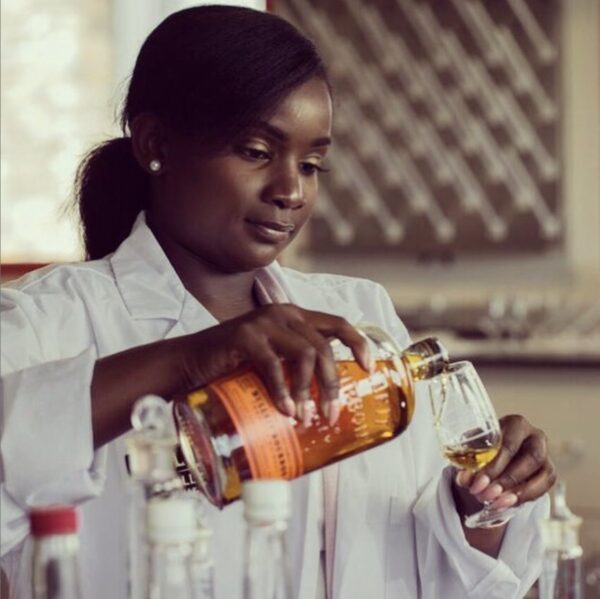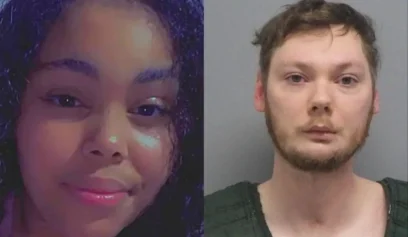Eboni Major was the “poster girl” for Bulleit Distillery and the first Black blender in the company’s history. She made waves with her award-winning bourbon, but her success was marred by racial discrimination.
The reported discrimination was severe to the degree that she developed health issues and had to leave the company, a lawsuit alleges. Major also has suffered embarrassment, anxiety and mental anguish because of her previous work environment, her attorney alleges.

According to the lawsuit Major filed against Bulleit’s parent company, Diageo, Major dealt with constant microaggressions during the five years and seven months that she worked for Bulleit.
She was the only Black person at the distillery in Shelbyville, Kentucky, where she claims she was paid less than her white counterparts, but was expected to do more. She also claims she wasn’t given the same recognition as white employees and they were often credited for her work. Most of her complaints reportedly were ignored except for when she faced retaliation.
All of that led her to work in a hostile environment, according to the complaint filed in the Supreme Court of New York on April 4.
Stephanie Childs, the executive vice president of corporate relations for Diageo North America, disputed Major’s claims.
“Diageo celebrates and values diversity on all levels, and our long track record demonstrates a real commitment to creating a culture that supports inclusivity,” Childs said in a statement to The New York Times.
In spite of the harassment, Major rose through the ranks of the company. She started as a blending intern in 2015. In 2019, she pitched her own bourbon, Blenders Select. It won the Gold Medal at San Francisco World Spirits Competition. In addition, Major won Diageo’s Global Craftsperson of the Year award. In December 2020, Whiskey Advocate named Blender’s Select its fourth-top whiskey.
It was the first time any Bulleit blend was named among Whiskey Advocate’s Top 20 blends. However, Major’s picture was excluded from the company’s social media when Whiskey Advocate recognized the product.
Despite the accolades for the liquor that she created alone, Major’s name is nowhere on the label for Blender’s Select. Yet, Johnnie Walker’s Jane Walker, which was launched at the same time as Major’s bourbon, had the creator’s signature on every bottle, even though a team helped create the product.
When the liquor won the World Spirits Competition, Bulleit posted a photo of the bottle on its Instagram page, but not a photo of Major. However, a white female co-worker who accomplished less than Major often would be featured on one of the company’s other whiskey brand pages.
Behind the company’s doors, Major’s white coworkers had little regard for racial sensitivity despite touting an environment of diversity and inclusivity. On one occasion, another employee said to Major: “Hey, Poufy Head, what happened to the dreads?”
When Major complained to her bosses, one recommended that she say something back to the other employee about her hair.
Her immediate supervisor also “denigrated” and stereotyped Major. He once referred to Major as a “peon” and asked her about crime, “citing Ms. Major’s African-American ethnicity as the reason for asking the question,” the lawsuit says.
Major found various disparities in the pay ratio between her and other employees even as she became a brand ambassador.
Major went on a national marketing tour where she was required to set up, curate and clean up her own event presentation, but she was often skirted out of her talent fee, overtime, and other compensation. She also had to make her own travel arrangements on some occasions, despite being assigned the tasks by the company.
Major was left stranded in the rain after hosting a dinner for bloggers during a marketing trip in March 2020 because Diageo did not arrange transportation back to her hotel, the lawsuit alleges.
According to the lawsuit, her marketing role went beyond hosting events and sample tastings. Her image was on the hangtags for bottles and marketing campaigns for Black History Month and Women’s History Month, with little to no compensation.

Diageo and Bulleit used Major’s image to their public relations advantage, sometimes without her permission or with her disapproval.
In February 2019, while Bulleit was in the middle of a public scandal, Major was asked to do a live podcast interview with comedian Adam Carolla. She told her supervisors she was concerned about “being abused” because of Carollla’s reputation of being offensive.
However, Major’s bosses assured her that the comedian would stick to his notes and talking points, the complaint alleges.
However, it turned into a “traumatic experience” for Major, according to her claims. She was the only Black person there while Carolla made several racist jokes and hosted a segment called, “What would happen if I got pulled over by the cops?”
Later that year, the company ended Major’s marketing tour.
“In retaliation for complaining often and bitterly about the differential treatment she received as a person of color, all of Ms. Major’s media opportunities were suspended,” the lawsuit says.
Major and company officials agreed to mediation that ended without a settlement. She rejected a $300,000 deal and continued to face retaliation and differential treatment. In June 2021, Major was diagnosed with hypertension, which her lawyer said resulted from emotional distress.
“I tried with Diageo over and over,” Major said. “They fought me every step along the way.”


